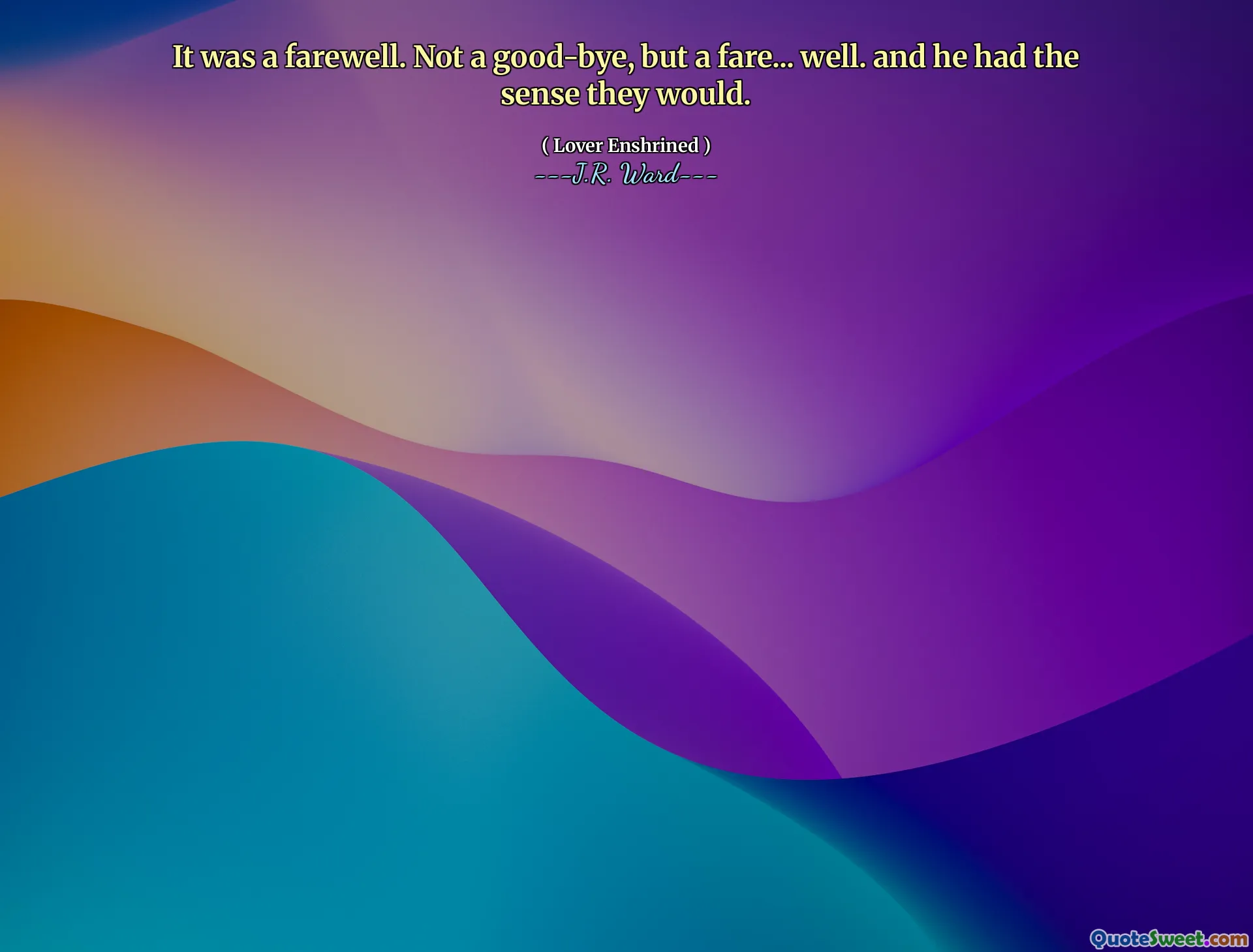
It was a farewell. Not a good-bye, but a fare... well. and he had the sense they would.
This quote captures a nuanced moment of parting that transcends the usual farewell. The distinction between 'good-bye' and 'farewell' here is subtle yet powerful. While 'good-bye' often implies a sense of finality, perhaps tinged with sadness or loss, 'farewell' in this context is broken down into "fare... well"—a wordplay that underscores a wish for well-being rather than just an ending. It hints at optimism and hope that the separation is temporary or that the people involved will continue to thrive independently. The ellipsis and pause in the phrase further deepen the emotional weight, reflecting hesitation, uncertainty, or contemplation, which often accompanies moments of departure.
This portrayal resonates with anyone who’s experienced farewells that feel incomplete or ambiguous. There's an inherent tension in the final line: "and he had the sense they would." It suggests an intuitive belief or feeling that despite the physical distance or ending of one chapter, connections remain intact—be it emotional bonds, memories, or unspoken promises. The quote captures the richness of human experience surrounding goodbyes, moving beyond just a simple closure to embrace complexity, emotional layers, and the human hope for continuity.
The quote's poetic structure and linguistic playfulness reflect the delicate art of saying goodbye—something simultaneously painful and hopeful, definitive and open-ended. It elegantly conveys how farewells are not just endings but can be wishes for ongoing well-being and unspoken understandings.







